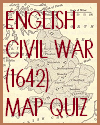Educational games can be a powerful tool for helping high school World History students understand the growth of English parliamentary democracy from the 13th to the 20th century. Games engage students actively, encouraging them to apply knowledge, think critically, and collaborate with peers. When learning about key events such as the Model Parliament of 1295, the English Civil War, the Glorious Revolution, and the passing of the Reform Acts and Parliament Acts, students can benefit from simulations or role-playing games that bring these moments to life.
For example, a classroom simulation of the Model Parliament can help students understand the roles of nobles, clergy, and commoners and how power gradually shifted from the monarchy to representative bodies. Strategy-based games that focus on political decision-making, reform movements, or balancing power between the monarchy and parliament allow students to explore the consequences of different actions in historical context.
These games promote engagement and retention by allowing students to experience the challenges and compromises that shaped modern democratic systems. They also support diverse learning styles and foster problem-solving, teamwork, and historical empathy. Through active learning, students can better grasp the significance of parliamentary evolution and how it laid the foundation for constitutional government in Britain and around the world.
|
















































